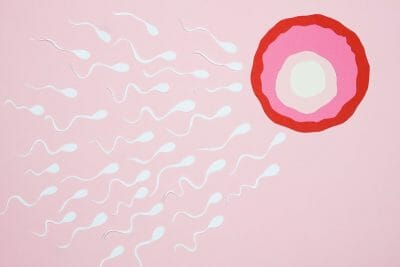Egg freezing, also known as oocyte cryopreservation, has become an increasingly popular topic in recent years. Many women consider this option to preserve their fertility and delay motherhood until later. However, many myths and misconceptions surrounding egg freezing can cause confusion and hesitation when considering this option. In this listicle, Marin Fertility Center will debunk some of the most common misconceptions about egg freezing.
1. Egg Freezing Is Only For Women In Their 40s
One of the most common misconceptions about egg freezing is that it is only suitable for women in their 40s experiencing fertility issues. This is simply not true. Egg freezing can be an option for women of all ages who want to preserve their fertility. Many women in their 20s and 30s choose to freeze their eggs as part of their plan to prepare for their future.
2. Egg Freezing Is Only For Women Who Don’t Want To Have Children Yet
Another misconception about egg freezing is that it is only for women who don’t want to have children yet. This is also not true. Egg freezing can be an option for women who wish to delay motherhood for personal or medical reasons. Women undergoing cancer treatment, for example, may choose to freeze their eggs before treatment to preserve their fertility.
3. Egg Freezing Is Expensive
While it is true that egg freezing can be costly, there are now affordable options available in the market. In fact, some clinics nowadays offer financing options for those who wish to avail it, while other clinics make this a part of the employee benefits packages. With this said, it is evident that this procedure is now more accessible for many women.
4. Egg Freezing Is Dangerous
Egg freezing is generally considered very safe. The chance of experiencing a complication while going through the process is statistically less than 1%, and there are no known long-term risks associated with it. The process typically involves taking medication to stimulate the ovaries to produce multiple eggs, which are retrieved and frozen later. The drugs used are similar to standard IVF procedures, and the overall risks are similar. It is prudent to only choose a reputable clinic to maximally protect yourself.
- Egg Freezing Guarantees A Successful Pregnancy
While egg freezing can improve the chances of a successful pregnancy, it is not always guaranteed. The success rates of egg freezing vary depending on some factors, including the woman’s age at the time of egg retrieval and the quality of the eggs. Additionally, there is always some degree of risk involved with any fertility treatment, and there is no way to predict with absolute certainty whether a particular treatment will result in a successful pregnancy.
6. Egg Freezing Is Only For Single Women
Many assume that egg freezing is only suitable for single women who are not in a committed relationship. However, this is not the case. Egg freezing can be an option for women in a committed relationship who want to delay motherhood for personal or medical reasons. It can give women the flexibility to pursue other goals, such as career advancement or travel, without feeling pressured to start a family immediately.
7. Egg Freezing Is A Last Resort
Another common misconception about egg freezing is that it is a last resort for women trying to conceive without success. While egg freezing can be an option for women experiencing fertility issues, it is also an option for women who simply want to plan for their future and preserve their fertility. Women must understand that they can choose to freeze their eggs at any time, regardless of their current fertility status.
8. Egg Freezing Is The Same As IVF
Egg freezing and in-vitro fertilization (IVF) are different fertility treatments, although they share some similarities. Egg freezing involves retrieving a woman’s eggs, which are then frozen and stored until she is ready to use them. IVF involves retrieving eggs, fertilizing them in a lab, and then transferring the resulting embryos into a woman’s uterus to achieve a successful pregnancy. Both treatments can help women who are having difficulty getting pregnant, but they should not be confused as being the same thing.
9. Egg Freezing Is The Only Option For Preserving Fertility
Egg freezing is not the only option for women who want to maintain fertility. Other treatments, such as donor egg IVF and embryo banking, can also be used. Additionally, lifestyle changes such as quitting smoking and eating a healthy diet can help to improve fertility in both men and women.
Conclusion
Marin Fertility Center understands that egg freezing is a viable option for women who want to preserve their fertility and delay motherhood for personal or medical reasons. It is essential to debunk the myths and misconceptions surrounding this option to provide accurate information and help women make informed decisions about their reproductive health. By understanding the facts about egg freezing, women can make the best choice for themselves and their future.
